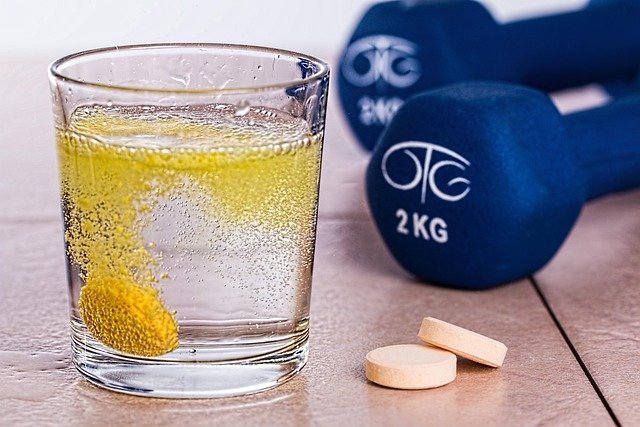Vitamins and Minerals That Support Liver Function
Vitamins can play an important role in supporting liver health by promoting overall wellness and helping the body function efficiently. Incorporating key nutrients into your diet may aid liver function, support metabolism, and contribute to maintaining a balanced, healthy lifestyle.

Essential Vitamins to Support Liver Function
Several vitamins play crucial roles in maintaining healthy liver function. Vitamin E acts as a powerful antioxidant, protecting liver cells from oxidative stress and inflammation. Studies suggest that adequate vitamin E levels may help reduce fat accumulation in the liver. B-complex vitamins, particularly B12, folate, and B6, support the liver’s detoxification processes and help metabolize fats and proteins. Vitamin D deficiency has been linked to various liver conditions, making adequate vitamin D levels important for liver health. Vitamin C enhances the production of glutathione, one of the liver’s most important antioxidants, helping neutralize harmful free radicals and supporting the organ’s natural detoxification pathways.
Supplements for Liver Health
Various supplements have gained attention for their potential liver-supporting properties. Milk thistle, containing the active compound silymarin, has been used traditionally to support liver function and may help protect liver cells from damage. N-acetylcysteine (NAC) serves as a precursor to glutathione, potentially enhancing the liver’s antioxidant capacity. Alpha-lipoic acid functions as both a water and fat-soluble antioxidant, offering comprehensive cellular protection. Turmeric, with its active ingredient curcumin, possesses anti-inflammatory properties that may benefit liver health. However, it’s important to note that supplement quality varies significantly, and some products may contain contaminants or inaccurate labeling.
Daily Vitamins to Promote Liver Health
Incorporating liver-supporting vitamins into your daily routine requires careful consideration of dosage and timing. Fat-soluble vitamins like A, D, E, and K should be taken with meals containing healthy fats for optimal absorption. Water-soluble B vitamins and vitamin C can be taken throughout the day, as excess amounts are typically excreted through urine. A high-quality multivitamin can provide baseline support, but individuals with specific liver concerns may benefit from targeted supplementation. Consistency matters more than timing, so establishing a routine that fits your lifestyle increases the likelihood of maintaining healthy vitamin levels long-term.
Vitamins and Minerals for Healthy Liver
Beyond vitamins, certain minerals play vital roles in liver function. Selenium works synergistically with vitamin E to provide antioxidant protection and supports the production of glutathione peroxidase, an important liver enzyme. Zinc participates in numerous liver enzymes and helps metabolize alcohol and other substances. Iron levels require careful monitoring, as both deficiency and excess can negatively impact liver health. Magnesium supports over 300 enzymatic reactions in the body, including many that occur in the liver. Copper, while needed in small amounts, becomes toxic when accumulated in excess, highlighting the importance of balanced mineral intake rather than mega-dosing individual nutrients.
| Supplement Type | Common Brands | Typical Monthly Cost |
|---|---|---|
| Milk Thistle Complex | Nature’s Bounty, NOW Foods | $15-25 |
| B-Complex Vitamins | Garden of Life, Thorne | $20-35 |
| NAC (N-Acetylcysteine) | Jarrow Formulas, Life Extension | $18-28 |
| Vitamin E Complex | Solgar, Country Life | $12-22 |
| Liver Support Formula | Himalaya, Gaia Herbs | $25-40 |
Prices, rates, or cost estimates mentioned in this article are based on the latest available information but may change over time. Independent research is advised before making financial decisions.
Safety Considerations and Quality Factors
When selecting liver support supplements, third-party testing and certification become crucial factors. Look for products that have been tested for purity, potency, and contaminants by organizations like NSF International or USP. Some supplements can interact with medications or may not be appropriate for individuals with certain health conditions. For example, high doses of vitamin A can be toxic to the liver, and iron supplements may worsen certain liver conditions. Additionally, some herbal supplements marketed for liver health lack sufficient scientific evidence or may contain compounds that could potentially harm the liver in sensitive individuals.
The relationship between nutrition and liver health extends beyond individual supplements to encompass overall dietary patterns and lifestyle factors. While targeted supplementation may provide benefits, it works best as part of a comprehensive approach that includes a nutrient-dense diet, regular physical activity, adequate hydration, and avoiding excessive alcohol consumption. The liver’s remarkable ability to regenerate and heal makes it responsive to positive lifestyle changes, but this same characteristic means it can be vulnerable to ongoing damage from poor nutritional choices or harmful substances.
This article is for informational purposes only and should not be considered medical advice. Please consult a qualified healthcare professional for personalized guidance and treatment.




